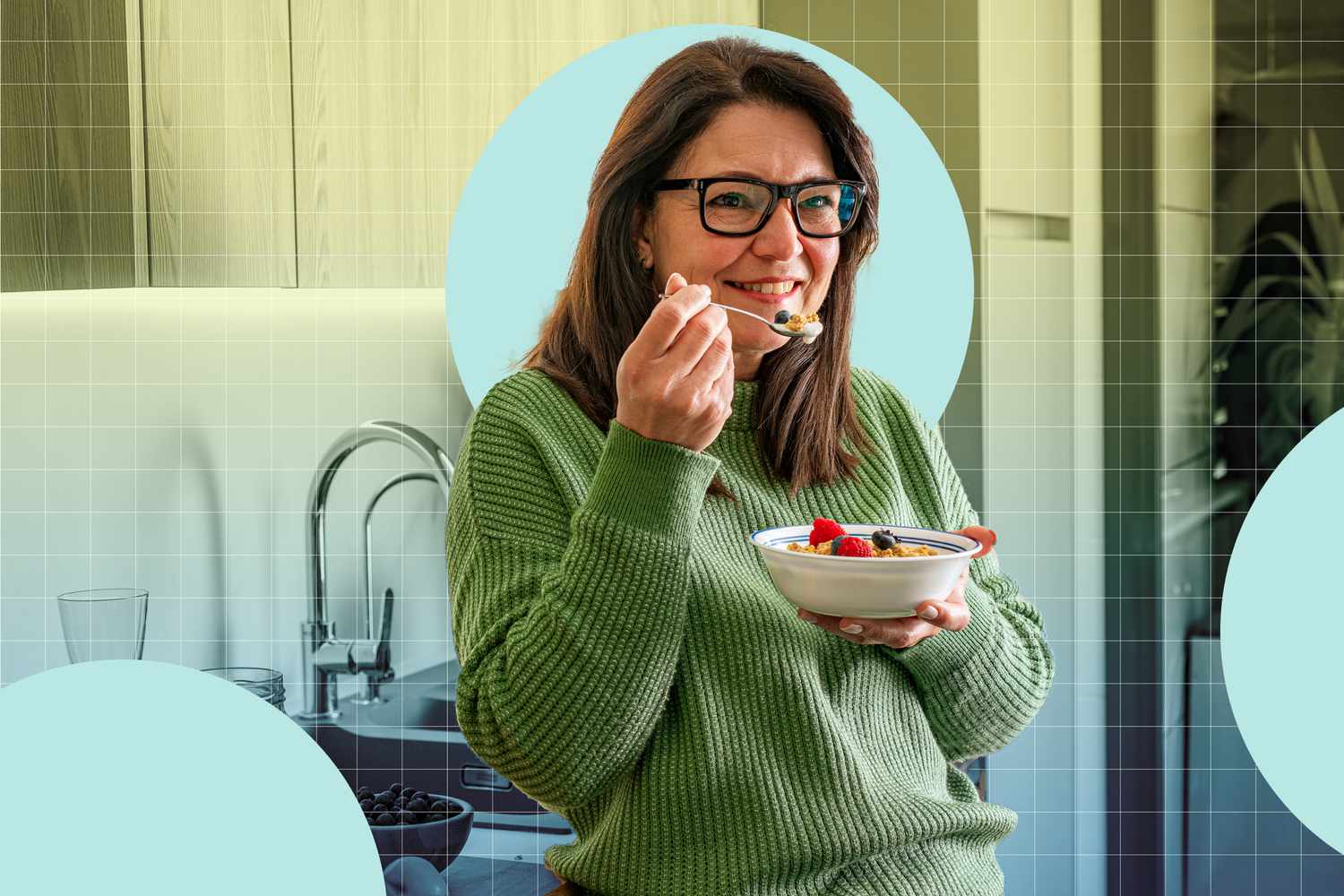Colon cancer is the fourth leading cause of cancer-related deaths in the U.S. But with regular screening and early detection, colon cancer can be prevented or successfully treated. This is because pre-cancerous polyps can be caught and removed when you get your recommended colonoscopies. Screening isn’t the only way to prevent colon cancer, though.
Some research has suggested that shifting your routine can help you lower your risk—whether that means enjoying a glass of milk or aiming for anti-inflammatory foods and habits. Other studies have suggested that yogurt, in particular, may offer protection against colon cancer. “Eating yogurt and the bacteria it contains can improve the health of the gut and the health of the gut lining,” says Sarah Pflugradt, Ph.D., RD, a performance nutritionist and owner of Sarah Pflugradt Nutrition. “Adding good bacteria to the gut can increase the production of short-chain fatty acids, which can help lower inflammation and have an antioxidant effect, and this can impact the development of cancer.”
One of these beneficial bacteria is called Bifidobacterium. If it looks familiar to you, it might be because you’ve seen it listed on your yogurt container. It’s one of the gut-friendly bacteria used to make yogurt and one that researchers believe may help prevent colon cancer.
Researchers from Brigham and Women’s, a Harvard teaching hospital in Boston, took a closer look at colon tumors in people who have regularly eaten yogurt for many years. Their findings are published in the February 2025 issue of Gut Microbes. Here’s what they found.
How Was This Study Conducted?
Researchers drew data from two long-term U.S. studies: the Nurses’ Health Study (NHS; started in 1976) and the Health Professionals Follow-up Study (HPFS; started in 1986). For this study, researchers included 87,379 women from the NHS and 44,677 men from the HPFS for a total of 132,056 participants. Baseline data was gathered and updated every two years to collect data on demographics, lifestyle factors, medical history and disease outcomes.
For both the NHS and HPFS, dietary information was gathered at baseline and updated about every 4 years. For this study, researchers categorized participants based on their yogurt intake: <1 serving/month, 1-3 servings/month, 1 serving/week and ≥2 servings/week.
Each participant was followed until 2016, a colon cancer diagnosis or death, whichever came first.
For those participants with a colon cancer diagnosis, researchers wanted to know how much, if any, Bifidobacterium was found in their cancer tumors, and if there was an association between yogurt consumption and the type of tumors. This meant they were going deeper than just an overall association between yogurt consumption and colon cancer.
What Did This Study Find?
There ended up being a total of 3,079 colon cases during the study period. Among those, 346 (31%) were Bifidobacterium-positive cases, and 775 (69%) were Bifidobacterium-negative cases.
If you’re feeling confused, that’s understandable. After all, if Bifidobacterium is supposed to help prevent colon cancer, why was it found in 31% of the colon cancer cases?
The researchers don’t have a final answer on that yet, but they surmise that Bifidobacterium in colon cancer tumors may be there to help fight the cancer. They also say that Bifidobacterium-positive colon tumors may suggest impaired intestinal barrier function.
If you’ve heard of leaky gut syndrome, you’ve heard of the intestinal barrier. At its healthiest, your intestinal barrier is a selectively permeable wall that allows your gut to absorb nutrients but keep in bacteria and undigested food particles. If it’s not functioning properly, toxins and other substances may be able to cross the barrier—which could explain how Bifidobacterium enters the cancer tumor.
And since the Bifidobacterium-negative tumors appeared twice as often as the Bifidobacterium-positive ones, the study authors propose that yogurt intake may reduce the risk of developing colon cancer when your intestinal barrier is disrupted.
How Does This Apply to Real Life?
In this study, participants reporting higher yogurt intake were also more likely to have higher intakes of total folate, calcium and vitamin D, plus they were more regularly screened with colonoscopies, were more physically active and were less likely to smoke or consume processed and red meat.
All of these behaviors are linked to a lower risk of colon cancer. So not only did they eat plenty of yogurt, but they also tended to engage in overall healthy habits. This stresses the importance of taking a big-picture view of your health habits. While some foods and behaviors help reduce the risk of disease, there is no one magic potion, food or behavior that completely erases the risk of anything. It’s a collaborative effort that involves every area of your life.
The Bottom Line
This study suggests that higher yogurt intake is associated with a lower risk of colon cancer. In particular, it appears to protect against Bifidobacterium-positive colon cancer tumors. This is likely due to having more beneficial gut bacteria, which help protect the colon. Other fermented foods that add helpful bacteria to your gut include kefir, kimchi and sauerkraut.
Since bacteria need to eat to thrive, be sure to also include plenty of high-fiber foods—fruits, vegetables, whole grains, legumes, nuts and seeds. Limit or avoid red meat and processed meats, ultra-processed foods and foods and beverages with a lot of added sugar. And keeping your whole health in mind, move more often, get plenty of quality sleep, manage your stressors and spend quality time with family and friends. In doing so, you’ll not only reduce your risk of disease—including colon cancer—but you’ll also improve your quality of life.

